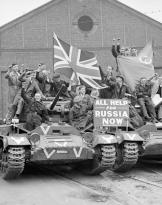The Nazi army was certainly one of the most powerful in history. Numerous factors contributed to making it such: tactical-military superiority, technology, a strong indoctrination campaign and ... a good dose of drugs, such as amphetamines and methamphetamines. To reveal it is a book: "Toxic. The secret weapon of the Reich. Drugs in Nazi Germany " written by a German journalist, Norman Ohler, who accurately explains the role of drugs in the triumphs of the German armies during the Second World War. In fact, some German military campaigns, like that of Poland and that of France, would have been impossible without the help of the pervitin, a methamphetamine capable (taking a certain daily dose) to completely eliminate fatigue and tiredness, more than normal sensations within a war, but dangerous for those who base their strategy of victory over speed, as in the case of Blitzkrieg German. OKW, the German Supreme Command, knew well that a fatigue-free army, a stress-free soldier, was the key to victory.
The Pervitin was produced on a large scale in the 1940: the company that dealt with its production, the Temmler, produced about 35 million units during that year; and it was not only used by German troops, but also by civilians, albeit in smaller quantities.
 Many soldiers, but also many officers and non-commissioned officers, became addicted to it. Soldiers took methamphetamine mainly to survive the adversities of the conflict and stay awake for as long as possible. The officers, however, used the drug to free the mind and keep the concentration higher. The continuous use of psychotropic substances in the long run led to numerous side effects, such as depression, nausea, heart attacks and restlessness, mixed with a good dose of aggression. All this was documented by a German officer, Otto Ranke, director ofInstitute of Physiology of the German Armed Forces, sent to study the effects of the drug administered. Ironically, even Ranke became dependent on him, so much so that he even faked relationships to keep Pervitin in circulation. But there was another reason for these actions: the continuation of the war required men capable of enduring Hitler's ferocious strategy, thus able to conduct blitzkrieg without problems.
Many soldiers, but also many officers and non-commissioned officers, became addicted to it. Soldiers took methamphetamine mainly to survive the adversities of the conflict and stay awake for as long as possible. The officers, however, used the drug to free the mind and keep the concentration higher. The continuous use of psychotropic substances in the long run led to numerous side effects, such as depression, nausea, heart attacks and restlessness, mixed with a good dose of aggression. All this was documented by a German officer, Otto Ranke, director ofInstitute of Physiology of the German Armed Forces, sent to study the effects of the drug administered. Ironically, even Ranke became dependent on him, so much so that he even faked relationships to keep Pervitin in circulation. But there was another reason for these actions: the continuation of the war required men capable of enduring Hitler's ferocious strategy, thus able to conduct blitzkrieg without problems.
 Not only the military and civilians were drugged. Hitler himself would have used psychotropic substances to endure at first the stress caused by public meetings with the masses or with the diplomats, then the weight of a war that gradually became more and more disastrous. The drugs Hitler assumed would initially make him optimistic and euphoric, which would make the high German officers angry, and then cause severe depression. These substances were injected by his personal physician, Theodor Morell, almost daily, especially towards the end of the war.
Not only the military and civilians were drugged. Hitler himself would have used psychotropic substances to endure at first the stress caused by public meetings with the masses or with the diplomats, then the weight of a war that gradually became more and more disastrous. The drugs Hitler assumed would initially make him optimistic and euphoric, which would make the high German officers angry, and then cause severe depression. These substances were injected by his personal physician, Theodor Morell, almost daily, especially towards the end of the war.
The German health minister, Leo Conti, opposed in every way the administration of drugs to the troops and the population, taking into account their side effects, but without any success. Amphetamines and methamphetamines were used until the end of the war: the German Army withdrew on all fronts and its soldiers needed substances that could put up with the weight of defeat.
This dark light does not concern only the Wehrmacht, but almost all the armies of the Second World War. Japanese, British, French and American (the US used similar substances in subsequent wars, such as Korea and Vietnam) used drugs to improve performance in the field. A truly disturbing question, which manages to make understand the inhuman mechanisms of a war that changed the destiny of humanity.
(photo: web)












